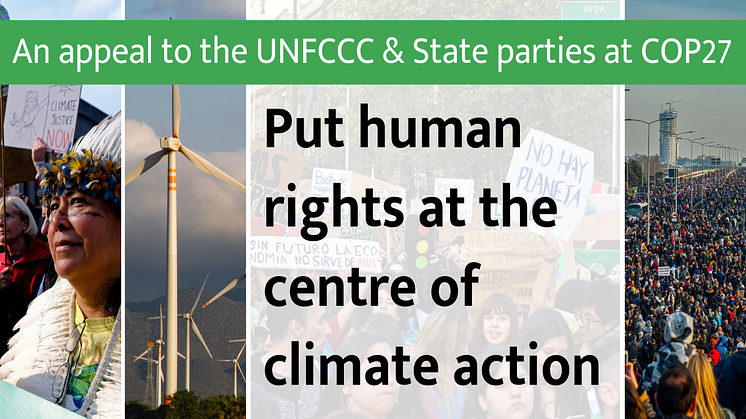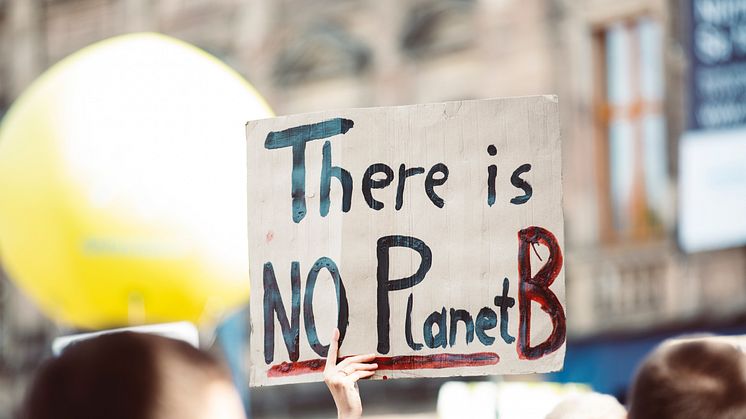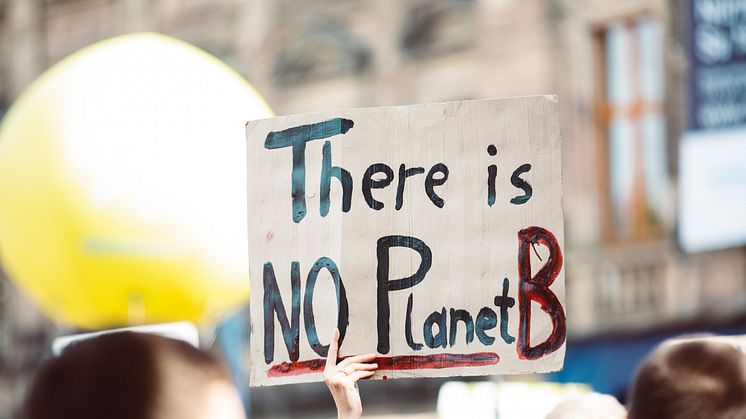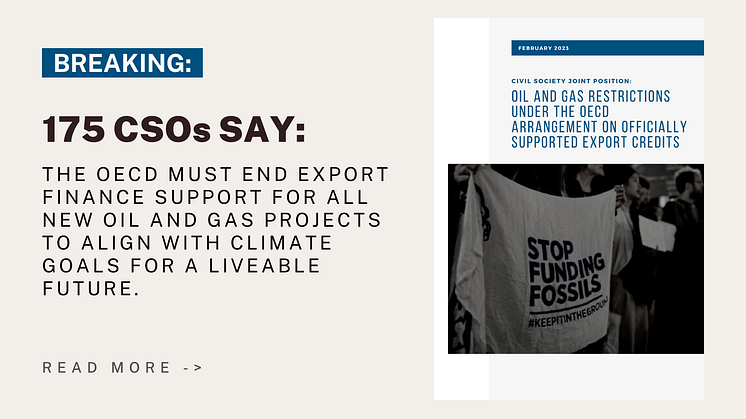
Pressmeddelande -
COP26 commitments welcomed but the outcome lacks substance in the most important areas
Denounced by many as one of the least inclusive in the history of climate negotiations, COP26 narrowly avoided failure by adapting the Glasgow Climate Pact at the very last minute. However, due to its several compromises, the most encouraging deals were those closed in parallel initiatives.
After nearly two weeks of negotiations, global leaders at the COP26 climate conference in Glasgow managed to agree to keep on pursuing the 1.5 °C target – but failed to agree on measures needed to achieve that goal, as well as on an effective financial mechanism to ensure adequate climate adaptation measures in low-income countries.
Furthermore, due to low covid-19 vaccination rates and mitigation measures put in place by the COP organizers, low stakeholder representation from the Global South sparked heavy criticism of the conference for excluding participation from the world’s most vulnerable countries. By one account, only one-third of the usual number of participants representing the Global South was able to attend – a sharp contrast to the substantial industry presence. According to Global Witness, representatives from businesses actors associated with fossil fuel industries outnumbered any country delegation.
Postponed climate finance commitments
Within the area of climate finance, it was agreed that collective target to deliver USD 100 billion annually should be reached as soon as possible, and that financial resources should be further increased to meet the needs of countries particularly vulnerable to climate change. The latter is a point which civil society actors have strongly advocated for in the last years, as the impacts of climate change have become increasingly evident and are expected to worsen in many Global South countries.
The text of the deal also recognizes that a 45 percent emissions reduction by 2030, relative to the 2010 level, is needed to contain global warming within 1.5 °C. Because of the gap remaining between current pledges and the 1.5 °C limit, the text requests countries to update their emissions reduction targets to align with the goal of the Paris agreement by the end of 2022. According to commentators, this will increase diplomatic pressure on all countries to increase climate targets, including on laggard countries which have not presented updated pledges ahead of Glasgow.
The disagreement between low- and high-income countries over whom should bear the cost climate action was also a factor discouraging more ambitious and immediate emissions reduction goals, with many countries preferring to adopt net-zero emissions targets further ahead in the future.
Recognition of fossil fuels
An encouraging development was that, in a first for climate talks, parties dealt directly with the role of fossil fuels in causing climate change. The Glasgow Climate Pact calls upon parties to accelerate efforts towards “the phasedown of unabated coal power and the phase-out of inefficient fossil fuel subsidies”, making it the first time that fossil fuels were named in a climate deal. Even though the language is weak and falls short of a commitment to phase out fossil fuels or even coal, this is an improvement considering the Paris Agreement does not once mention “fossil fuels” in its text.
Encouraging deals closed in parallel initiatives
Furthermore, a host of parallel initiatives aimed at phasing out financing and even the extraction of fossil fuels were taken by more progressive countries. In a joint statement, 34 countries and 5 development finance institutions committed to phasing out international public finance support for fossil fuels and to “end new direct public support for the international unabated fossil fuel energy sector by the end of 2022, except in limited and clearly defined circumstances that are consistent with a 1.5°C warming”.
In a separate initiative named the Beyond Oil and Gas Alliance (BOGA), six countries, including oil- and gas producing Denmark and three autonomous regions including some with estimated large oil and gas reserves such as Greenland, committed to put an end to extraction and exploration of oil and gas within their borders. Sweden has joined both initiatives and thus committed to phase out fossil fuels from its development finance and export finance support, except in limited circumstances. Swedwatch had advocated for the Swedish government to join the two initiatives and considers this as a positive development. Even though the initiatives have been criticized for the limited participation and the vague language, they do mark a turning point in how governments and their public finance institutions see and finance fossil fuels.
Promises will need to be closely monitored
Much remains to be done to address climate mitigation and adaptation, and the measures and commitments announced at COP fall dramatically short of what is needed to ensure that the direst consequences of climate change are avoided. High income countries have so far failed to deliver on their promise of mobilizing USD 100 billion of climate finance per year: the promises of reaching that number as soon as possible and scale it up by 2025 will need to be closely monitored by researchers and civil society, to ensure that low-income countries are not again short-changed.
Observers agreed that a few positive steps were taken at COP26, but that its outcome fell dramatically short of providing a solution to the climate crisis. It is now up to national governments, especially those of high-income countries, to follow through their finance commitments, update carbon emissions reductions plans and take measures to phase out fossil fuels subsidies and the use of fossil fuels.
Ämnen
Kategorier
Swedwatch är en ideell och politiskt obunden researchorganisation. Vårt mål är att företag, investerare och stater ska ta ansvar för mänskliga rättigheter och miljö och att rättighetsinnehavare kan göra sina röster hörda.






